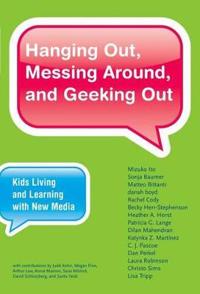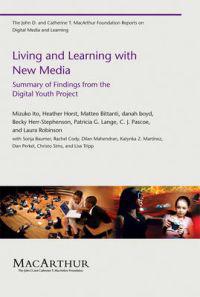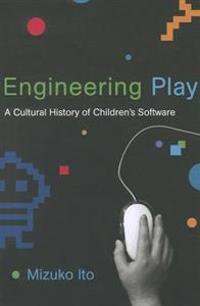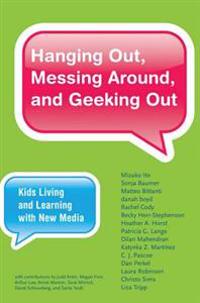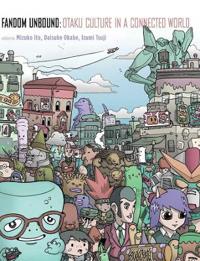Engineering Play: A Cultural History of Children's Software (Övrig)
avMizuko Ito
ISBN: 9780262013352 - UTGIVEN: 2009-11-03Today, computers are part of kids' everyday lives, used both for play and for learning. We envy children's natural affinity for computers, the ease with which they click in and out of digital worlds. Thirty years ago, however, the computer belonged almost exclusively to business, the military, and a[...]
Hanging Out, Messing Around, and Geeking Out (Inbunden)
avMizuko Ito, Sonja Baumer, Matteo Bittanti
ISBN: 9780262013369 - UTGIVEN: 200912Conventional wisdom about young people's use of digital technology often equates generational identity with technology identity: today's teens seem constantly plugged in to video games, social networking sites, and text messaging. Yet there is little actual research that investigates the intricate d[...]
Living and Learning with New Media (Häftad)
avMizuko Ito, Heather A. Horst, Matteo Bittanti
ISBN: 9780262513654 - UTGIVEN: 200906This report summarizes the results of an ambitious three-year ethnographic study, funded by the John D. and Catherine T. MacArthur Foundation, into how young people are living and learning with new media in varied settings -- at home, in after school programs, and in online spaces. It offers a conde[...]
Engineering Play (Häftad)
avMizuko Ito
ISBN: 9780262517386 - UTGIVEN: 201203Today, computers are part of kids' everyday lives, used both for play and for learning. We envy children's natural affinity for computers, the ease with which they click in and out of digital worlds. Thirty years ago, however, the computer belonged almost exclusively to business, the military, and a[...]
Hanging Out, Messing Around, and Geeking Out (Häftad)
avMizuko Ito
ISBN: 9780262518543 - UTGIVEN: 201302Conventional wisdom about young people's use of digital technology often equates generational identity with technology identity: today's teens seem constantly plugged in to video games, social networking sites, and text messaging. Yet there is little actual research that investigates the intricate d[...]
Fandom Unbound (Pocket)
avMizuko Ito, Daisuke Okabe, Izumi Tsuji
ISBN: 9780300158649 - UTGIVEN: 201202In recent years, otaku culture has emerged as one of Japan's major cultural exports and as a genuinely transnational phenomenon. This timely volume investigates how this once marginalized popular culture has come to play a major role in Japan's identity at home and abroad. In the American context, t[...]
Participatory Culture in a Networked Era: A Conversation on Youth, Learning, Commerce, and Politics (Inbunden)
avHenry Jenkins, Mizuko Ito, Danah Boyd
ISBN: 9780745660707 - UTGIVEN: 2015-12-18Participatory Culture in a Networked Era: A Conversation on Youth, Learning, Commerce, and Politics (Pocket)
avHenry Jenkins, Mizuko Ito, Danah Boyd
ISBN: 9780745660714 - UTGIVEN: 2015-12-18


